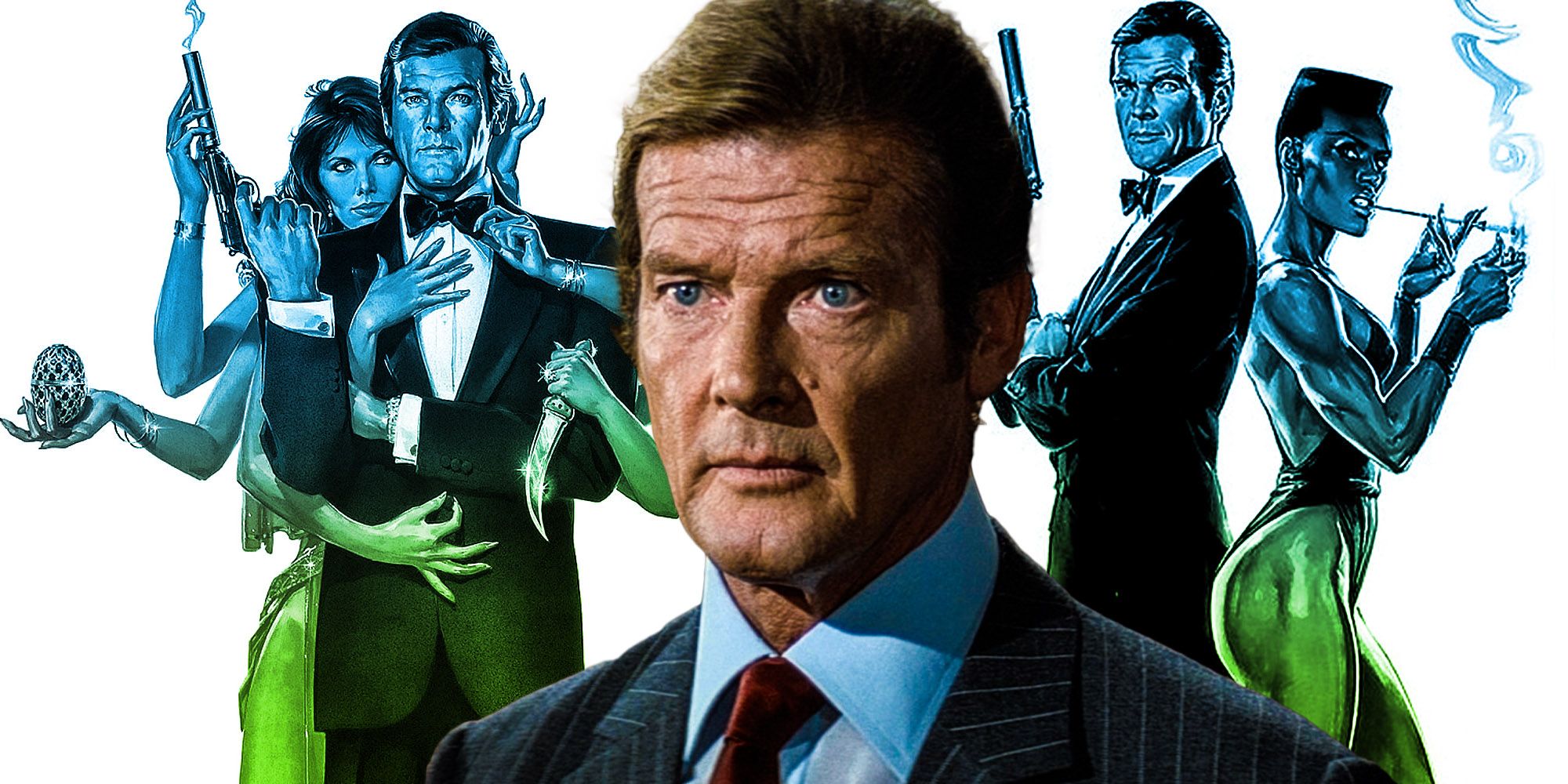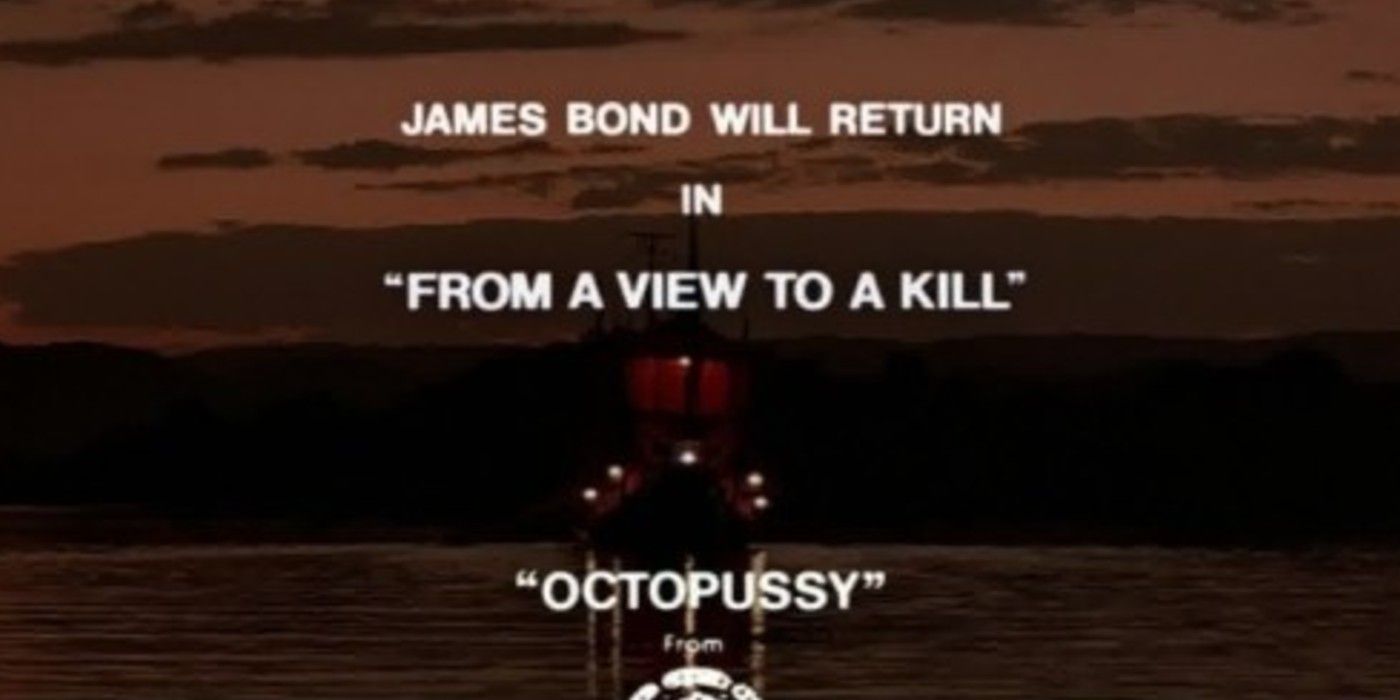Why did James Bond's Octopussy bring one long-standing franchise tradition to an end? In the current cinematic landscape, you'd be hard-pressed to find a character as steeped in tradition as James Bond. Change has come slowly to Ian Fleming's iconic secret agent - 007 knows what he likes, and likes what he knows. There's the famous theme music and bleeding gun barrel shot, the ever-present "Bond, James Bond" line, the preference of car, the overly-fussy drinks order, and the not-so-fussy attitude towards treatment of women.
Rarely considered a favorite by the James Bond faithful, 1983's Octopussy sees Roger Moore's 007 hot on the trail of a glamorous jewel thief by the name of Octopussy, until a plot is uncovered to provoke tensions between the US, Europe and Soviet Russia. Bond and Octopussy are forced to work together in an outrageously silly spy caper that puts Moore in both clown make-up and a gorilla outfit. Needlessly to say, Octopussy, more than any other Bond entry, typifies the goofiness that many disliked about the Roger Moore era.
For longtime James Bond fans, Octopussy also marked the last outing for a well-known series tradition. After From Russia With Love wowed audiences in 1963, the end credits proudly revealed "James Bond will return in the next Ian Fleming thriller... GOLDFINGER." This began a trend, in which the title of each James Bond installment would always be announced in the previous film's credits. As well as giving fans a reason to stick around before post-credits scenes were a thing, teasing one film directly after the other was a perfect way to build hype, catching viewers still buzzing from 2 hours of action, and reassuring them of more to come. Sadly, Octopussy was the final time this happened, ending with the confirmation of "From A View to a Kill."
Finding out the title of Bond's next adventure in theaters was exciting, but the tradition became more impractical as the years went by. "From A View to a Kill" wasn't the first incorrect announcement, with The Spy Who Loved Me (also in the Moore era) promising fans For Your Eyes Only, but instead giving them Moonraker, as producers sought to capitalize on sci-fi mania. Hollywood became more dynamic in the 1980s, and James Bond needed more flexibility, especially as 007 headed towards a period of legal wrangling and uncertainty during Timothy Dalton's reign.
Today, announcing a sequel so early is almost unheard of. Even the highest grossing franchises wouldn't risk committing to a follow-up title before at least seeing how fans and critics reacted to the current movie. Nevertheless, the tradition lives on in some form. MCU releases have a habit of ending with "[Insert Superhero Here] will return" and even that seems a little bold. This particular James Bond motif is the product of a bygone era, and speaks to how quickly studios used to pump out films. Sean Connery's 007 notched up one movie per year, more or less, but the time span between films gradually expanded. As the movie-making process became more involved, it's little wonder James Bond decided to stop announcing his next film's title after Octopussy.


